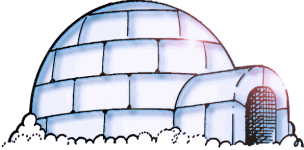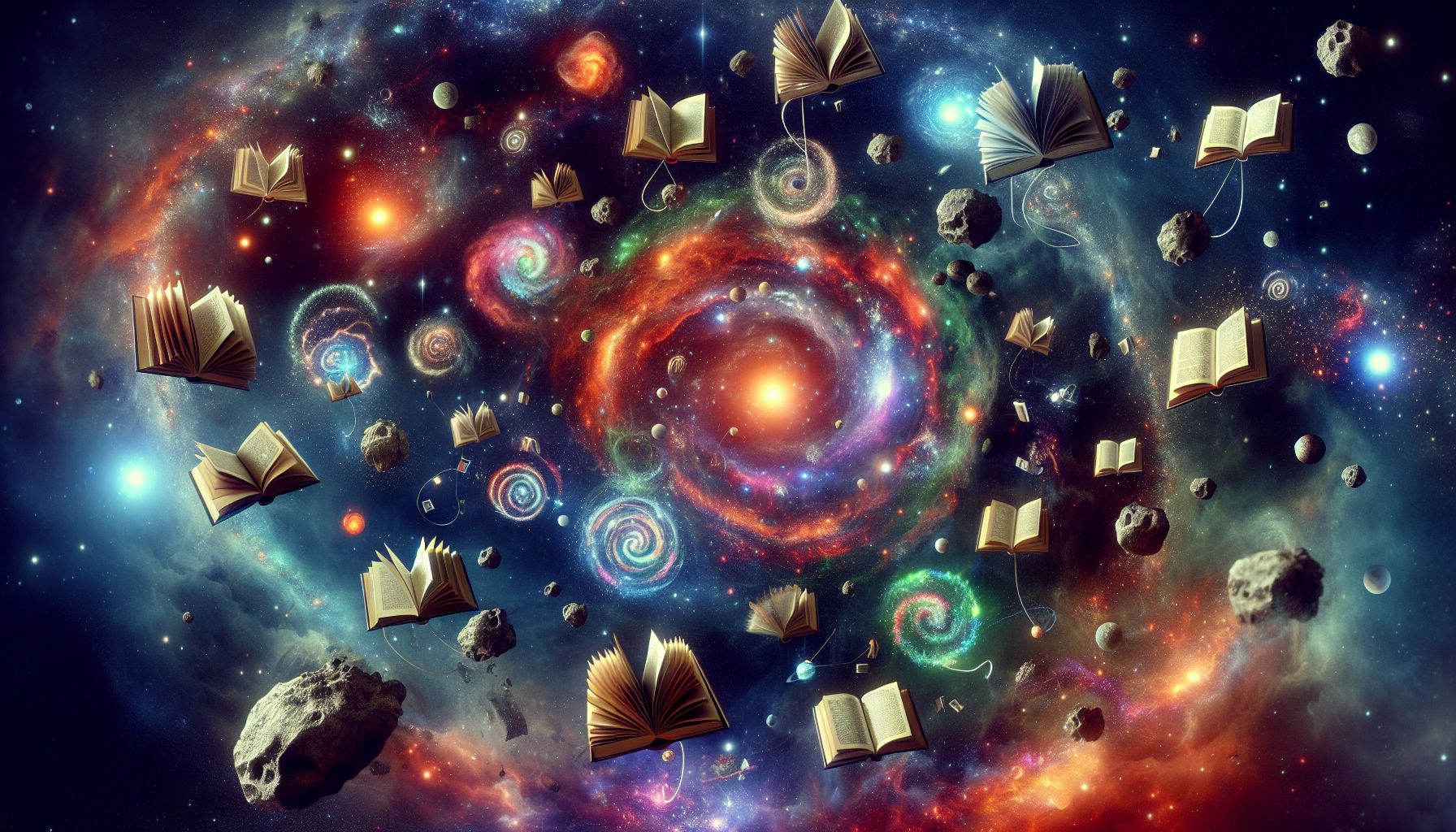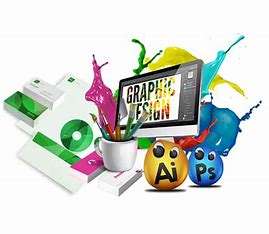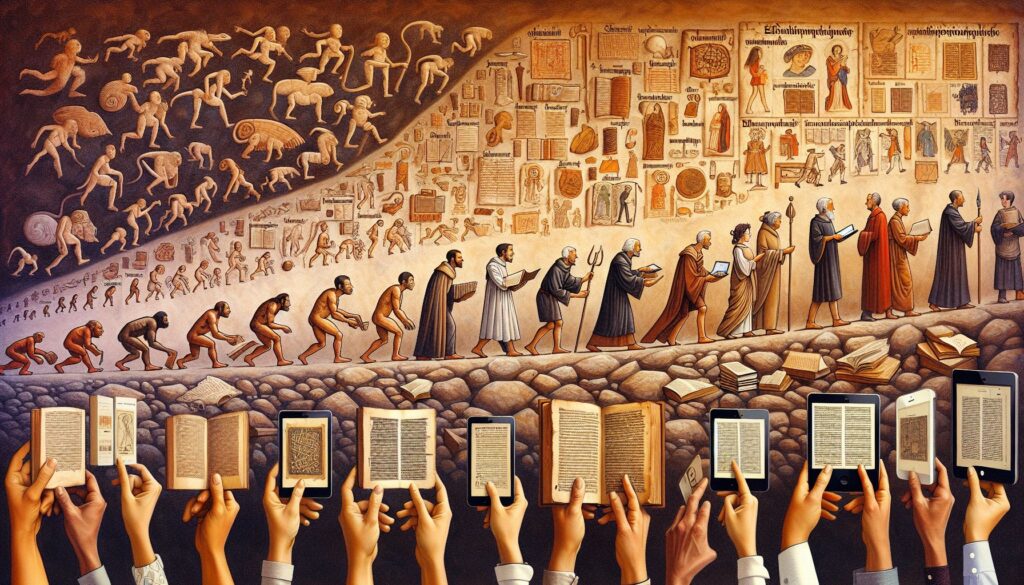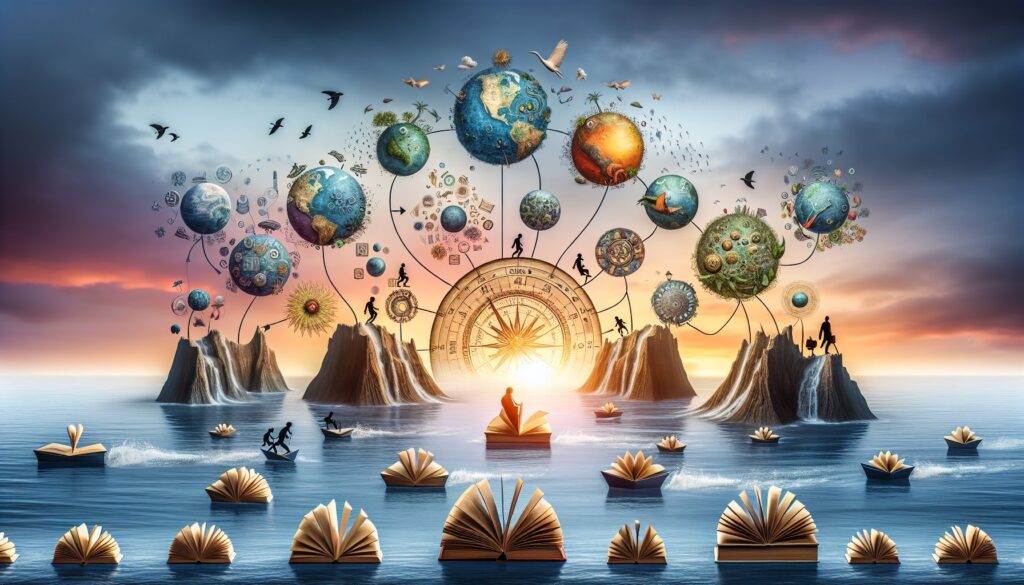In the space of a single breath, literature has the power to transport us: from the creaking decks of a pirate ship to the marble halls of a Victorian mansion, from the star-spangled expanse of alien galaxies to the convoluted labyrinth of a mind unhinged. This transformative ability to unravel the complex tapestry of human experience—making sense of our past, commenting on our present, and speculating about our possible futures—is the true magic of storytelling. It is the passport to enter through a door you never saw before into a world beyond our own limited perspectives.
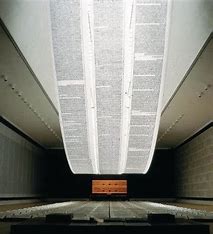 In navigating the grand library of literature, one may observe that it is a kingdom of diverse realms, each genre possessing distinct characteristics and narratives that correspond with a range of readers’ tastes, desires, and needs. Classic literature serves as the foundation of this kingdom, a treasure trove of timeless themes and profound insights. Works by Chaucer, Shakespeare, and Dickens still punctuate the modern literary landscape, shaping notions of societal norms, love, loss, and redemption. Their prose is a living testament to the human condition, an exploration of life’s timeless truths and universal experiences.
In navigating the grand library of literature, one may observe that it is a kingdom of diverse realms, each genre possessing distinct characteristics and narratives that correspond with a range of readers’ tastes, desires, and needs. Classic literature serves as the foundation of this kingdom, a treasure trove of timeless themes and profound insights. Works by Chaucer, Shakespeare, and Dickens still punctuate the modern literary landscape, shaping notions of societal norms, love, loss, and redemption. Their prose is a living testament to the human condition, an exploration of life’s timeless truths and universal experiences.
In stark contrast, contemporary reading material offers a snapshot of the present, embodying the complexities of our shifting cultural landscapes. With authors like J.K. Rowling, Stephen King, and Chimamanda Ngozi Adichie taking center stage, audiences around the globe find themselves enraptured by the allure of potent narratives that challenge traditional norms and position the reader within the vibrant tapestry of an every-changing world.
However, the universe of books is not stagnant, but rather an evolving entity. Over the centuries, our consumption of literature has metamorphosed, commencing from the humble parchment scroll to the Gutenberg press, and culminating in today’s advanced electronic devices. This technological progression has spawned an era of democratized reading, where access to literature is no longer reserved for the privileged, but is widely accessible on a global scale.
As we embark on this technological trajectory, what could the future of reading look like? With advancements in technologies such as e-books, audiobooks, and VR, one could surmise that reading will continue to be molded by the demands of a digital society. A single device can now hold thousands of books, shattering physical limitations and barriers to access.
However, we are also witnessing a resurgence in physical reading materials with a growing appreciation for independent bookshops and second-hand stores. This points towards a future that melds the traditional with the innovative, a testament to mankind’s enduring love for the written word in all forms.
Ultimately, literature is not confined by the constraints of time, generation or technology. It transcends these earthly shackles, harnessing the power of convolution or simplicity, painted with interludes of varied emotive hues, connecting us by the universality of the human experience. As we move forward into unknown realms, the brilliance of literature remains ceaselessly enchanting, its influence on culture pervading, and its potential for innovation boundless.
So, reader, the door to the vast universe of literature swings open. Step in, and fly across the constellation of written words. Adore it, dissect it, lose yourself in it, find yourself again and question everything you know. For there, in the kingdom of book-bound worlds, stories wait quietly, eager to reveal their secrets to those who dare to venture into the depths of their enchanted pages.
